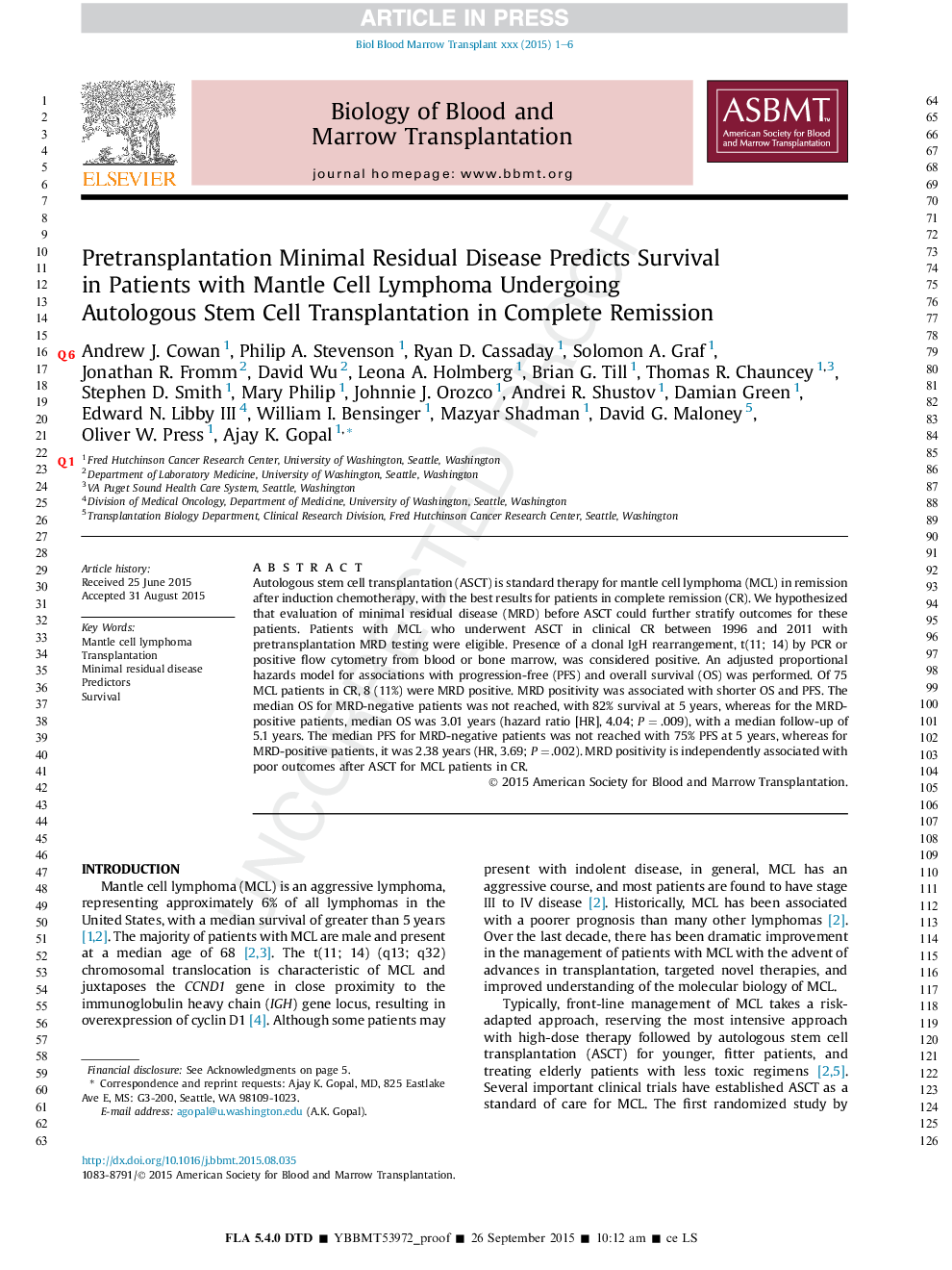| Article ID | Journal | Published Year | Pages | File Type |
|---|---|---|---|---|
| 8431212 | Biology of Blood and Marrow Transplantation | 2016 | 6 Pages |
Abstract
Autologous stem cell transplantation (ASCT) is standard therapy for mantle cell lymphoma (MCL) in remission after induction chemotherapy, with the best results for patients in complete remission (CR). We hypothesized that evaluation of minimal residual disease (MRD) before ASCT could further stratify outcomes for these patients. Patients with MCL who underwent ASCT in clinical CR between 1996 and 2011 with pretransplantation MRD testing were eligible. Presence of a clonal IgH rearrangement, t(11; 14) by PCR or positive flow cytometry from blood or bone marrow, was considered positive. An adjusted proportional hazards model for associations with progression-free (PFS) and overall survival (OS) was performed. Of 75 MCL patients in CR, 8 (11%) were MRD positive. MRD positivity was associated with shorter OS and PFS. The median OS for MRD-negative patients was not reached, with 82% survival at 5Â years, whereas for the MRD-positive patients, median OS was 3.01Â years (hazard ratio [HR], 4.04; PÂ = .009), with a median follow-up of 5.1Â years. The median PFS for MRD-negative patients was not reached with 75% PFS at 5Â years, whereas for MRD-positive patients, it was 2.38Â years (HR, 3.69; PÂ = .002). MRD positivity is independently associated with poor outcomes after ASCT for MCL patients in CR.
Related Topics
Life Sciences
Biochemistry, Genetics and Molecular Biology
Cancer Research
Authors
Andrew J. Cowan, Philip A. Stevenson, Ryan D. Cassaday, Solomon A. Graf, Jonathan R. Fromm, David Wu, Leona A. Holmberg, Brian G. Till, Thomas R. Chauncey, Stephen D. Smith, Mary Philip, Johnnie J. Orozco, Andrei R. Shustov, Damian J. Green,
